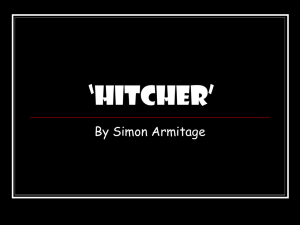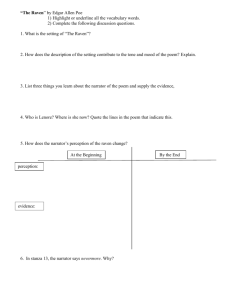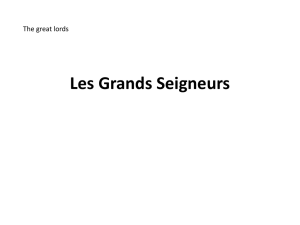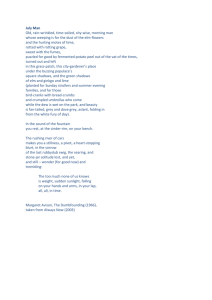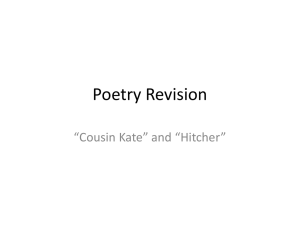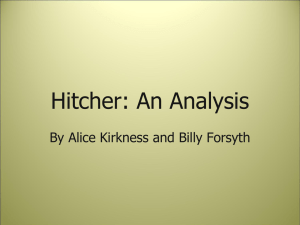Hitcher notes - St Cuthbert Mayne GCSE English
advertisement
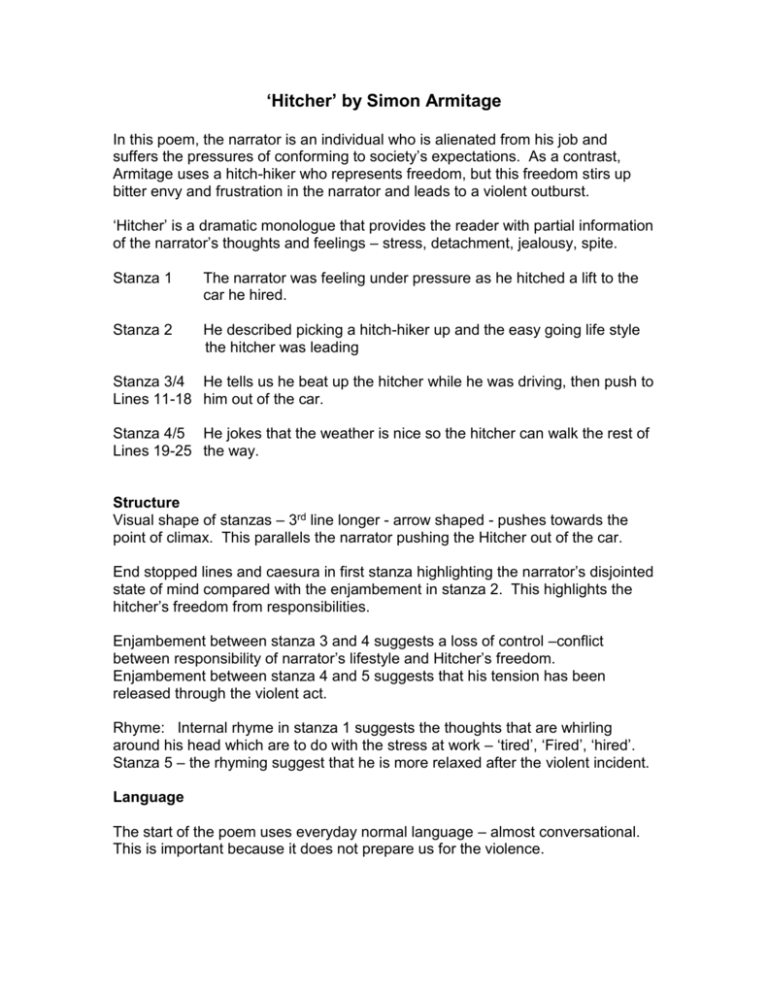
‘Hitcher’ by Simon Armitage In this poem, the narrator is an individual who is alienated from his job and suffers the pressures of conforming to society’s expectations. As a contrast, Armitage uses a hitch-hiker who represents freedom, but this freedom stirs up bitter envy and frustration in the narrator and leads to a violent outburst. ‘Hitcher’ is a dramatic monologue that provides the reader with partial information of the narrator’s thoughts and feelings – stress, detachment, jealousy, spite. Stanza 1 The narrator was feeling under pressure as he hitched a lift to the car he hired. Stanza 2 He described picking a hitch-hiker up and the easy going life style the hitcher was leading Stanza 3/4 He tells us he beat up the hitcher while he was driving, then push to Lines 11-18 him out of the car. Stanza 4/5 He jokes that the weather is nice so the hitcher can walk the rest of Lines 19-25 the way. Structure Visual shape of stanzas – 3rd line longer - arrow shaped - pushes towards the point of climax. This parallels the narrator pushing the Hitcher out of the car. End stopped lines and caesura in first stanza highlighting the narrator’s disjointed state of mind compared with the enjambement in stanza 2. This highlights the hitcher’s freedom from responsibilities. Enjambement between stanza 3 and 4 suggests a loss of control –conflict between responsibility of narrator’s lifestyle and Hitcher’s freedom. Enjambement between stanza 4 and 5 suggests that his tension has been released through the violent act. Rhyme: Internal rhyme in stanza 1 suggests the thoughts that are whirling around his head which are to do with the stress at work – ‘tired’, ‘Fired’, ‘hired’. Stanza 5 – the rhyming suggest that he is more relaxed after the violent incident. Language The start of the poem uses everyday normal language – almost conversational. This is important because it does not prepare us for the violence. Violent language – the narrator describes graphically how he attacked the hitcher. His descriptions are particularly shocking because of the casual tone – ‘I let him have it’ – it is a savage, sustained attack. Flippant remarks – he makes flippant remarks and sick jokes about the attack. ‘Didn’t even swerve’ – sounds as if he is boasting 'stitch' that I remember thinking,/you can walk from there.’ Play on words as the hitcher will need stitches if he is alive. ‘bouncing of the kerb’ - disturbing image, but matter of fact tone conveys narrators detachment. Essay title Explain how Armitage presents conflict and violence in the poem ‘Hitcher’. Use evidence from the poem to support your answer. Introduction: Briefly explain the content and ideas in the poem and how this links to the form. Analyse two or three structure techniques that are used to present conflict and violence (PEEALS) Analyse two or three language techniques that are used to present conflict and violence. (PEEALS) Conclusion: Give your personal opinion on how effectively the poet conveyed their attitude or ideas to you. Remember Choose your quotations and textual references carefully so that you can make comments that show insight and strong personal engagement with and interpretation of the poem.

